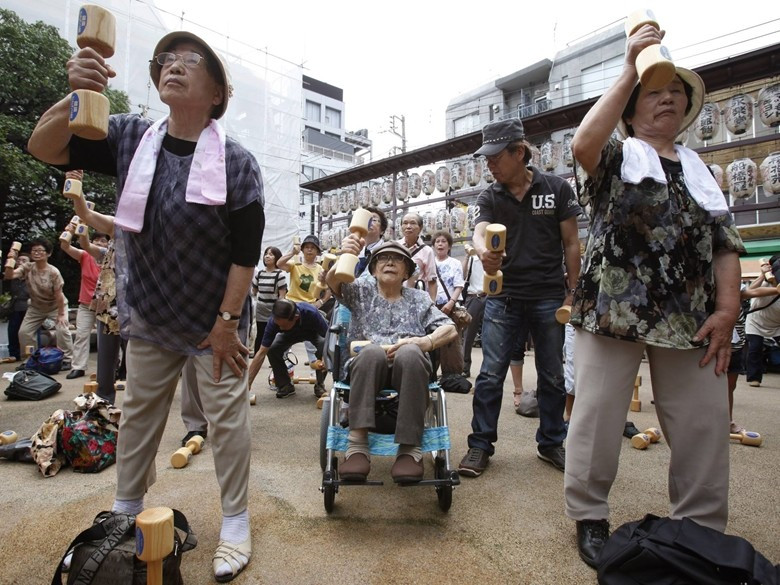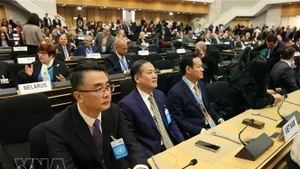In its recently published report, the United Nations Department of Economic and Social Affairs (DESA) has identified "population ageing" as a global trend. People live longer thanks to great advances in health, medical treatment, access to education and lower birth rates. Countries can benefit from this situation by promoting equal opportunities from birth, to give all people the opportunity to live longer in better health.
According to statistics from the United Nations, in 2021, the world has 761 million people aged 65 and over, this number is expected to increase to 1.6 billion by 2050. The number of people aged 80 and over is also increasing rapidly. Scientists estimate that the average life expectancy of children born in 2021 will be 71 years, an increase of about 25 years compared to the average life expectancy of those born in 1950. Europe and North America now have the highest proportions of the population over 65 years old, while North Africa, West Asia and Sub-Saharan Africa are projected to have the fastest growth rates in the number of elderly people over the next 30 years.
However, the report also pointed to inequalities that exist in an ageing world, because not everyone benefits equally from advances in health and education. While many elderly people remain in good health and actively participate in economic activities, many others live with disease and poverty. In more developed regions, pensions and public assistance systems can meet more than two-thirds of the consumption needs of the elderly. Meanwhile, in less developed areas, older people tend to work longer and rely more on self-accumulated assets, or the support of family members.
In addition, the ageing global population means that the need for social security for the elderly is increasing. This weakness was revealed during the recent period of the COVID-19 pandemic. Sadly, public spending in most countries is not enough to meet the growing need for care among the elderly. Age discrimination occurs in many countries, but is often overlooked. Elderly people, especially older women, are at risk of becoming victims of domestic violence. The rapid growth of the elderly population places the burden of care on younger family members, causing a state of stress and stress levels that can manifest in elder abuse.
Experts from the United Nations said that authorities need to review the social protection system, including the pension scheme. One of the major challenges is maintaining the financial sustainability of the public pension system, which ensures income for the elderly. Young people also need support to develop and plan for old age. The factors mentioned above can contribute to solving the problem of population ageing more comprehensively.
Population ageing poses economic and social challenges, but the right policies will create conditions for individuals, families and society, to address these challenges and take advantage of the benefits that population ageing brings. The UN Under-Secretary-General for Economic and Social Affairs has emphasised that the world together can tackle today's inequalities, manage challenges and capitalise on opportunities from an ageing population, for the benefit of future generations.
















